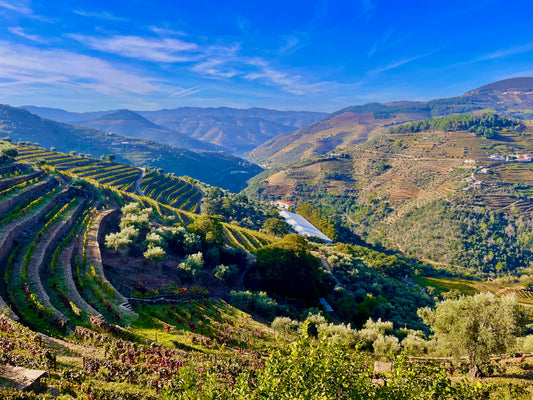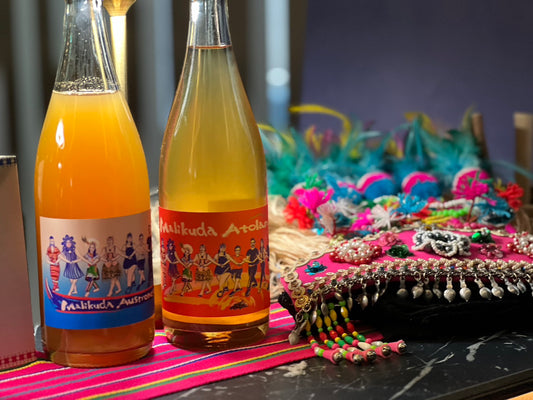| Jean-Michel Cazes, a visionary entrepreneur who reshaped Bordeaux's landscape, died on 28th June 2023. |
| A few years ago I sat next to Jean-Michel Cazes at a dinner at Café Lavinal, the thriving brasserie in the centre of the village of Bages in Pauillac. We were a party of about eight and conversation was general, but now and again Cazes and I chatted, and I discovered he went to the same school as my mother, the Royal Masonic School in Hertfordshire. He asked me about my mum (a couple of years older than him) and reminisced about what he, a French teenager, had thought of suburban post-war Britain: ‘The food was appalling.’ He struck me then as the least grand of the Bordeaux grandees. Cazes, who has died aged 88, was both cosmopolitan and as Bordelais as Arcachon oysters. After his excursion to England he went to Paris at 18, and at 24 found himself enrolled at the University of Austin, Texas. He was given a helping hand by the international network of the ultra-conservative Rotary Club, and as payback – as he writes in his autobiography From Bordeaux to the Stars – he was asked to speak at their gatherings, sometimes twice a week, and once to 2,000 people in Miami. ‘I was scared to death…but the experience has served me well throughout my professional life.’ And what a life it was. A national service stint in the French air force gave him a grounding in computing, which he translated into a job at IBM in 1962. ‘Some of my fellow IBMers were bon vivants. For the first time, I discovered that the name Lynch-Bages (the property acquired by his grandfather Jean-Charles Cazes in 1939) created a reaction in wine lovers.’ Explorations in wine followed – into ‘the complicated world of Burgundy’, and his first taste of Cheval Blanc – with ‘a colleague who was both a hedonist and a man of taste.’ |
| The young Cazes (in the book there’s a 1964 photo of him with a group of keen chaps in dark suits. He’s smiling broadly and his shoes are polished to a shine) rose steadily at IBM, making regular visits to the family château in Pauillac. His career might have continued in that way (he was obviously destined for a very senior role at IBM) but for a series of events – a move to a new company, the death of his grandfather Jean-Charles, his marriage to the beautiful Thereza, the daughter of a prominent Portuguese family in Mozambique – inspired him to take more interest in the wine business. And so it was in 1971 he told his father André he wanted to look after the family property. The reaction was unequivocal: ‘You’re crazy! You’re not going to come and live in Pauillac!’ That the northern outpost of Bordeaux was then a backwater, and is now a destination for any wine lover, is largely down to the efforts of the younger Cazes. ‘Everything was about to change,’ he writes, as he moved with Thereza and their four children to the ‘patchwork of dilapidated farm buildings’ in the village of Bages. Cazes was guided by ‘a simple principle’ that every visitor (however rare) ‘was a potential customer’. It was this, and the inspiration of characters like Robert Mondavi and Eugène Borie, that drove him to set about renovating Bages and the neighbouring Cordeillan into a model village, a hymn to the ‘art of living’. From 2002 they demolished what couldn’t be saved, and rebuilt what could. Cobblestones were reclaimed from the renovations in downtown Bordeaux, a bakery was built, and the bustling Café Lavinal. Château Cordeillan-Bages became a luxury hotel (with two Michelin stars) now run by the Relais et Châteaux group. In his autobiography Cazes recounts all this in matter-of-fact prose. Every important decision – such as recruiting the young Daniel LLose as oenologist – seems to be made on instinct (in LLose’s case, he was influenced by the fact he’d ‘shone in the local Bègles team as scrum-half’). He recounts the tragic death of his mother in 1975 on an unguarded level-crossing with a spare emotion that makes it all the more affecting: ‘Our father… fell into our arms.’ Looking through Cazes’ accomplishments, one wonders how he had time for it all. It’s difficult to overestimate his achievement in turning the uninspiring Pauillac into a tourist destination attracting thousands of visitors a year, first to Lynch-Bages and then to Cordeillan-Bages, surely the most unlikely model village in France. Building on his knowledge of insurance (the main business of the Cazes family) he founded AXA Millésimes with one of his oldest friends and ran its wine division for 15 years, building it into a formidable force; he founded a Bordeaux négociant, Michel Lynch; he bought Domaine de L’Ostal in the Languedoc, Domaine des Sénéchaux in Châteauneuf-du-Pape, and Xisto in the Douro; he partnered with the late Brian Croser in Tapanappa in Australia; he recognized and opened up the Chinese market as early as 1990. |
| Cazes’ son Jean-Charles took over management of the estate in 2006, but his father remained active to the end; he was contemplating promotion for his book only a couple of months ago. The book is peppered with famous names, whether winemakers, wine regions or wineries. The resonant families of Bordeaux march through the pages: Mau, Borie, Barton. Gardinier, Sichel, Moueix, Lur Saluces, Cruse… All these significant men and women played a major part in the building of modern Bordeaux, but Jean-Michel Cazes laid the foundations (in the case of Cordeillan-Bages he literally carted the stone and mixed the mortar). This, as Jane Anson says in her foreword to his autobiography, is a record of ‘a life well-lived.’ Jean-Michel Cazes is succeeded by his wife Thereza, son Jean-Charles, his daughters Kinou, Marina and Catherine and several grandchildren. From Bordeaux to the Stars is published by Académie du Vin Library. |



